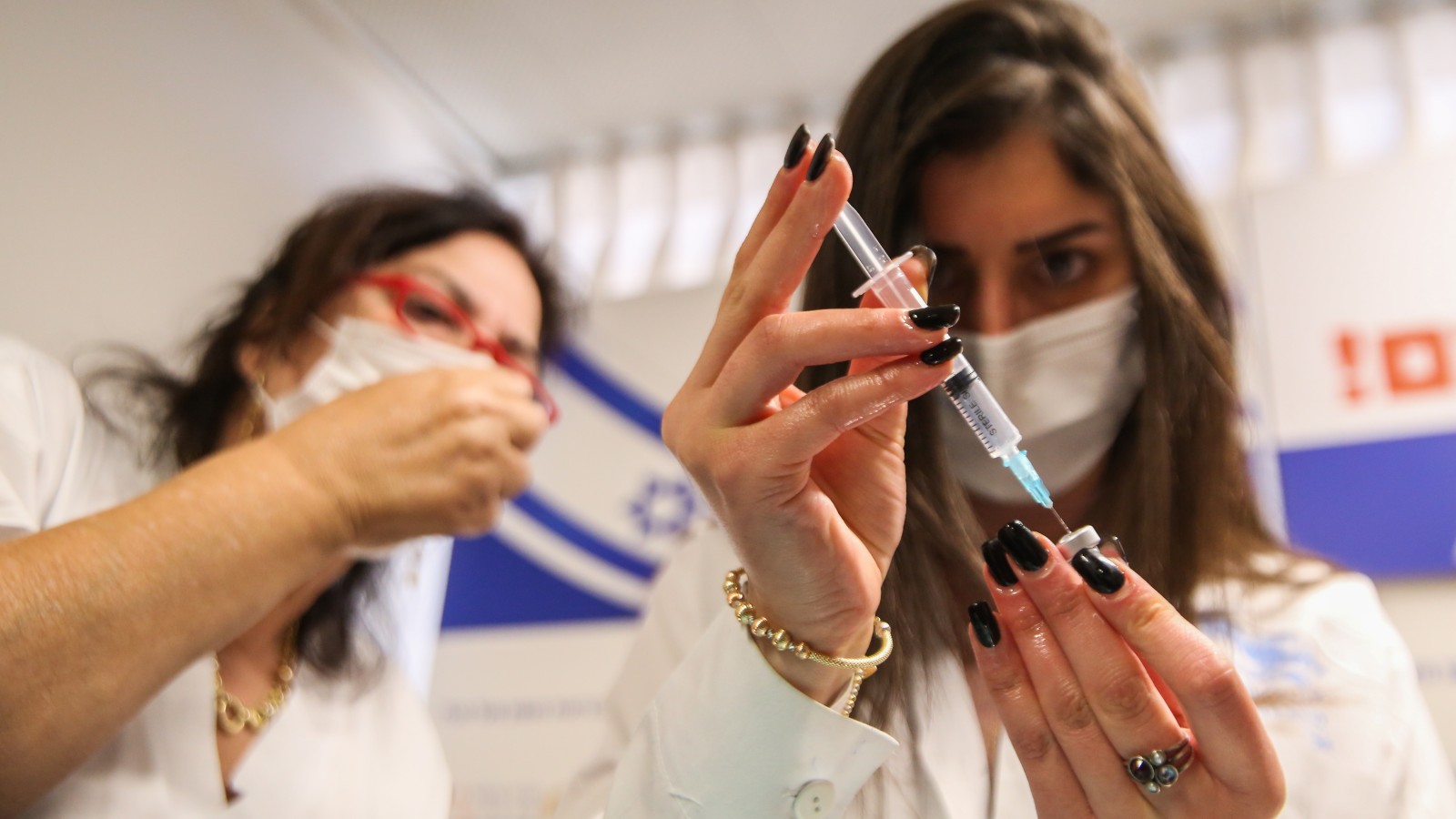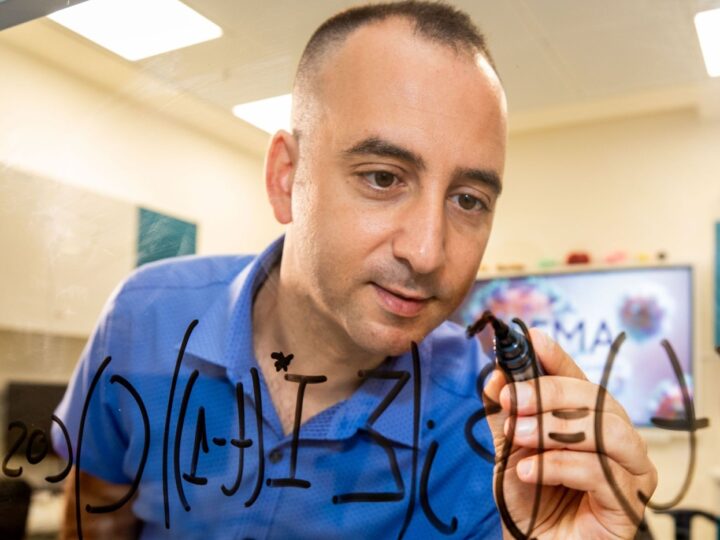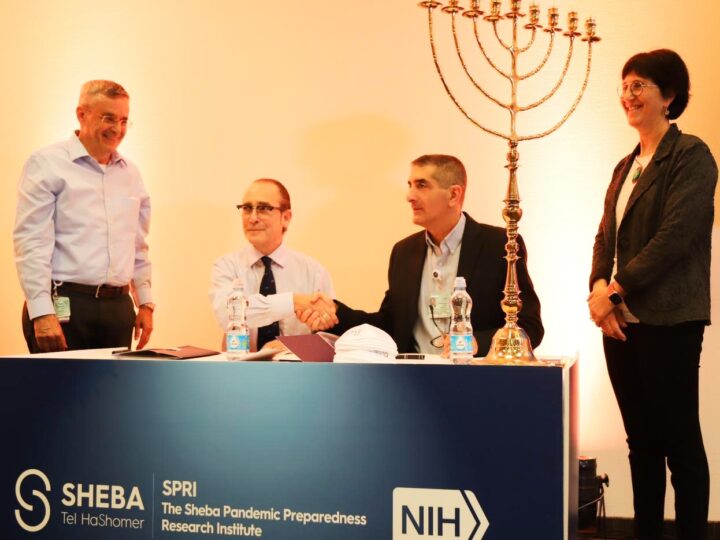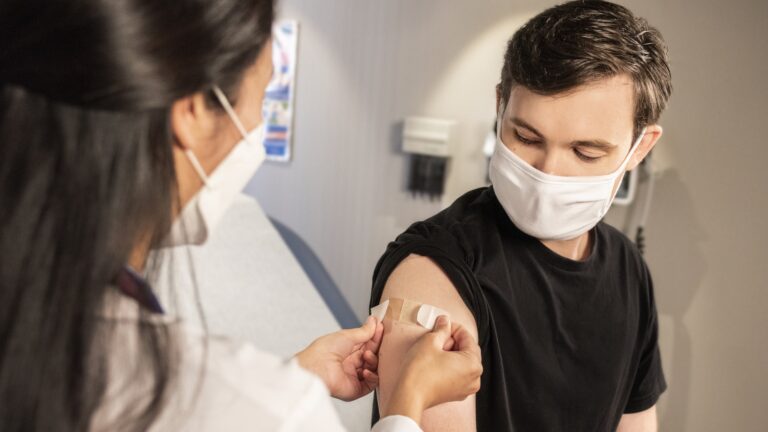eople who received both doses of the Pfizer BioNTech Covid-19 vaccine seem to be protected from the disease even after prolonged exposure to infected family members.
This encouraging news comes from infectious disease experts at Israel’s Ziv Medical Center and affiliated Bar-Ilan University medical school, both located in Safed (Tzfat).
This is the first report describing the effectiveness of the vaccine in preventing the virus from adhering to the mucosa of vaccinated persons, precluding the possibility of carrying the virus.
A team led by Dr. Shimon Edelstein, Ziv’s Infectious Diseases Unit head, tracked hospital employees whose family members were infected with the virus.
In the past year, 12 percent of the medical center’s 1,800 employees contracted Covid-19. Since then, 91% of the non-infected employees have been vaccinated. This led to herd immunity within the hospital, which happens when a sufficient percentage of a population has immunity and gives indirect protection to those who aren’t immunized.
“Despite the herd-immunity of the medical staff, most of them returned home, to locations where the epidemic was raging, in communities in which more than 7% of members were verified COVID-19-positive,” Edelstein and his team reported in The Journal of Hospital Infection on March 31.
Fourteen vaccinated workers had reported the presence of a verified Covid-19-positive family member in their home.
Vaccinated workers did not have to quarantine even if a verified patient resided in their home, and they were allowed to continue working regularly at the hospital, unless they developed suspicious clinical symptoms for Covid-19.
However, the researchers wondered if “prolonged exposure to a positive family member living in the same house may be a challenge to the immune system, unlike exposure to a positive patient for a short period.”
Nevertheless, none of the employees developed Covid-19 symptoms or signs, and only one was defined as a recovering patient based on serological testing.
“These findings are encouraging,” the researchers concluded, especially because the mechanism of action of the Pfizer and Moderna vaccines is still being studied. They trigger the immune system differently than does the virus itself.
Despite their concern that the virus might bind to the mucous membranes and make the vaccinated person a carrier, their findings indicate that the Pfizer vaccine “is effective against mucosal colonization of SARS-CoV-2 even during prolonged exposure.”
















